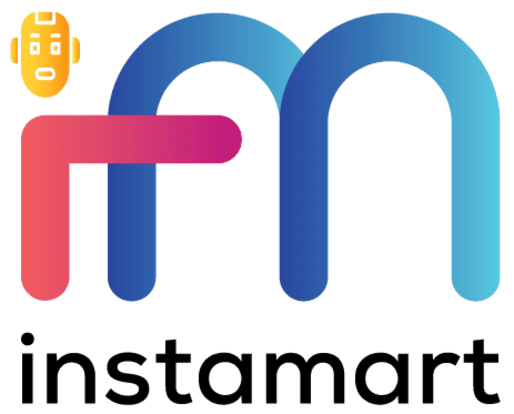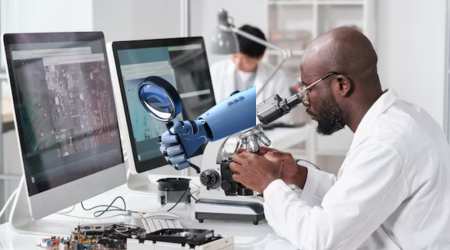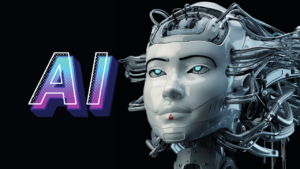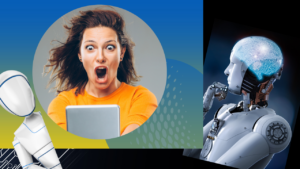When it comes to ChatGPT and medical diagnosis, much has changed in the modern world. Chatbots like Chat GPT-4 are commonly used by students in research processes. ChatGPT-4, the most recent version of OpenAI, might be a diagnostic expert on call.
ChatGPT has made significant advances in the medical world. For instance, A physician in Pennsylvania employed AI to generate patient visit summaries. Another instance is that AI chatbots benefit instructors, particularly at a medical school in Boston. They utilize it to train their students and teach them how to think like doctors. This demonstrates how potential robotics in healthcare is.
How can chatbots help doctors?
Computer programs today have been designed to make diagnoses. However, its outcomes and probabilities have not yet succeeded. Dr Roadman states, “It will generate something that looks similar to an illness script but fundamentally different from a search engine.” Kolata, a Times columnist, demonstrates that these Chatbots are ideally superior to most doctors nowadays. She describes using ChatGPT as “similar to pulling a doctor aside for insights and suggestions.”
Students endeavor to learn different skills which may be tricky to teach. AI, therefore, aims to transform the clinical medicine practice, mainly research and diagnosis.
How AI chatbot is improving diagnostics
AI algorithms examine massive amounts of patient data to help medical personnel make better-informed care decisions. Despite numerous uncertainties about its safety and regulation, the use of AI in clinical care is no longer in its infancy. AI is likely to rise exponentially in the future. It will be evaluated in the future based on how easily it can be integrated into healthcare systems.
Judi Rhys observes that AI shortens the time required for cancer radiotherapy and diagnosis. She emphasizes that the goal is not to replace radiologists but to make them more responsive. AI algorithms can help minimize issues by dealing with false negatives and positives, thus improving its readings. AI, therefore, has enormous promise for use in cancer diagnosis.
For instance, nearly 400 Food and Drug Administration-approved AI algorithms for radiology have been made possible by AI; through its capacity to recognize and process large amounts of structured and unstructured data. 3.6 billion Imaging procedures are done annually, producing enormous amounts of data. Nearly 97% of these data are not used. Thus, healthcare practitioners can arrange, index, and use this data with machine learning to improve diagnostic precision.
Read more: Artificial Intelligence’s Greatest Breakthrough in Breast Cancer Screening
How accurate is AI Chatbot in diagnosis?
According to Boston Medical Centre researchers, chat GPT-4 has the potential to be 40% correct in two-thirds of challenging instances. With the rising strain on medical professions, AI continues to contribute like humans. The machines process information more quickly than doctors. Dr. Smith claims that with the ease of action, AI chatbots can help relieve the pressure. They assist in providing responses that a doctor will analyze to determine their appropriateness.
Mitchell, a columnist at Newswise, suggests that generative AI chatbots have transformed the educational industry. However, she observes that little is known about its performance, particularly Complex diagnostic reasoning.
What is the future of the AI Chatbot in diagnosis?
AI is designed to optimize traditional care and rather not replace it. AI offers endless opportunities to solve mysteries in clinical care. Up to 48% of medical officers trust that AI will have the best infrastructure to improve clinical decision-making. As per WHO’s action plan, the more excellent application of AI in healthcare will assist in identifying trends, gaps, possibilities, and difficulties. Dr David, a regional data and digital health expert for WHO Europe, predicts it will be pertinent for mental health research. In terms of diagnosis and research results, this area will be ideal.
In the rapidly evolving world of medical diagnostics, AI-powered chatbots like ChatGPT-4 are making strides as diagnostic experts on call. The future of AI chatbots in diagnostics is predicted to be promising. Therefore, AI can revolutionize healthcare since it helps improve clinical treatment and detect trends and opportunities.
Read More: AI Robots Play Incredible Role for The Future of our Seniors’ Care





Quick look at jl18applogin and the login process was surprisingly straightforward. I didn’t struggle like on some others! Worth a moment if you’re after something simple. Check it out now: jl18applogin.
Thank you for your sharing. I am worried that I lack creative ideas. It is your article that makes me full of hope. Thank you. But, I have a question, can you help me?
Bong88comcom, my go-to for Asian handicap betting! Always find good odds here. Check it out bong88comcom
Thank you for your sharing. I am worried that I lack creative ideas. It is your article that makes me full of hope. Thank you. But, I have a question, can you help me?
Y555game seems like it could be my next obsession. Gonna dive in and see what all the hype is about. Fingers crossed! Give y555game a shot y555game
Can you be more specific about the content of your article? After reading it, I still have some doubts. Hope you can help me.
Can you be more specific about the content of your article? After reading it, I still have some doubts. Hope you can help me.
Can you be more specific about the content of your article? After reading it, I still have some doubts. Hope you can help me.
Can you be more specific about the content of your article? After reading it, I still have some doubts. Hope you can help me. https://accounts.binance.com/register?ref=P9L9FQKY
Can you be more specific about the content of your article? After reading it, I still have some doubts. Hope you can help me.
Your point of view caught my eye and was very interesting. Thanks. I have a question for you.
Can you be more specific about the content of your article? After reading it, I still have some doubts. Hope you can help me.
Your article helped me a lot, is there any more related content? Thanks!